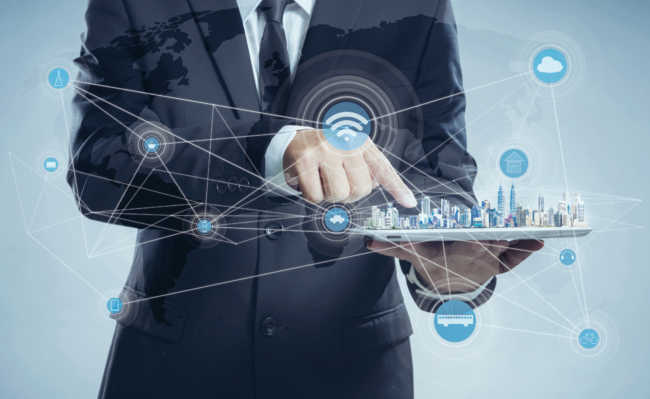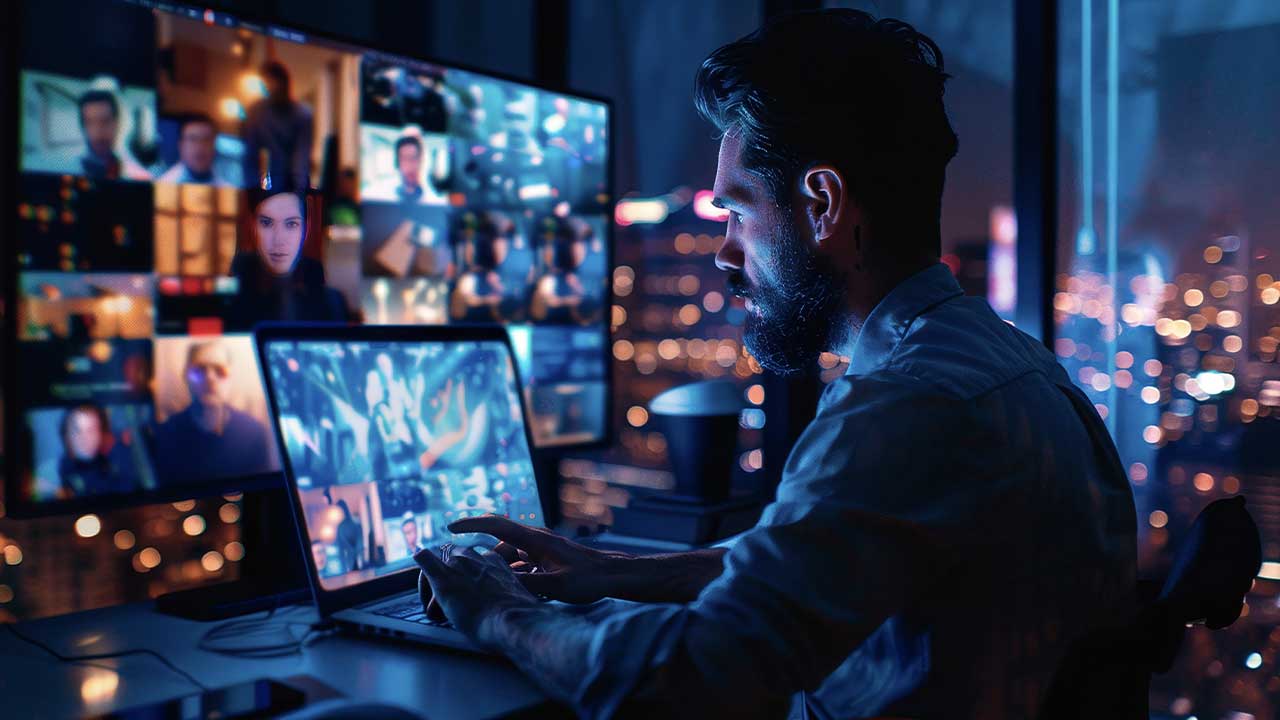Smart Cities Need Better Self-Storage Solutions
When it comes to smart cities, every industry has to go through a major overhaul: mobility, waste management, utilities, and many more. But it seems the self-storage industry hasn’t yet joined the trend. Busy city dwellers packed in small apartments in dense cities deserve better storage solutions for their things. Enter MakeSpace.
“We send an UBER team to your location. They can come to your location, pack your items, take pictures of your items. You’ll see what exactly you are storing. We measure all your stuff. We do all the hard work of playing Tetris. You will have visual inventory. You can literally look at your inventory digitally, and when you want to bring things back and forth, MakeSpace asks for a small fee.” These are the words of Rahul Gandhi, CEO of MakeSpace, a storage provider which is revolutionizing the self-storage industry, making it friendlier, more user-friendly, and more efficient. “How do we do this without disrupting other industries?” Gandhi said. “We are taking the storage problem and moving it to industrial areas outside of the city. What are we ultimately trying to do is to take the industry and apply technology, improving the logistic side and creating experiences that are cheaper and better.”
Those words, which I remembered from Gandhi’s presentation at the Smart Cities Connect Conference, took place in Tampa last October, came back to me this morning when I woke up to a WhatsApp message from my brother.
Since moving from Istanbul to Florida a year ago, I’ve been renting two storage units. One, in Istanbul, contains things I value emotionally, things I’ve cared for and held on to for many years. The other one is in Florida, as I live in a small condo with no place for my library and no need to keep winter clothes in the apartment.
My brother lives in Istanbul. He messaged me to tell me that he received a phone call from the storage company in Istanbul. Why had they called him? The employee who’d been there when I stored my things had left the company, and it seemed the new one was too lazy to dig through the company records. Instead, the new guy had been asking my brother if I’d paid my bills!
It wasn’t a great message to wake up to, and I don’t really want to consider what might happen to my valuables if the company that stored them wasn’t even capable of creating a system to follow up with a client. This wasn’t the first problem I’d had with them, either. Over the time I’d rented the unit, I’d been the one who reminded them to send me the bill so I could pay. According to my research and the comments that I’d read before renting from them, they were supposed to be the best in the city! There hadn’t been many options, however—that had been part of what allowed the company to get away with shoddy service.
What’s wrong with the traditional self-storage experience?
- Lots of moving parts. “You should have you a key with you.” “You need to remember your password.” Write it down, don’t lose it, remember where you kept those records…and on and on. Do all these statements sound familiar? All the small hoops that customers have to jump through in order to get to their valuables add up to a lot of extra stress that we don’t need in our lives.
- Inefficient management of your inventory. Although I made lists and took pictures of the items I stored, I ended up having to store those photos in a folder in iCloud, which made another thing for me to remember. (And even with all these efforts, I could not find my beautiful glass teapot, a gift I cherished and had carried with me through multiple moves from NYC.)
- Difficulties in transportation. Once you’re ready to move your stuff, you usually will need someone to help you carry heavy items. It is not easy to find someone who can help you move your stuff, and it can take a long day of moving! This is even more unfriendly for people with physical disabilities such as back problems.
- Dirty, uncomfortable, sometimes scary premises. Traditional storage units aren’t great if you’re allergic to dust. Or if you’re claustrophobic, either, I assume. Overall, these places are so unwelcoming. I always thought that storage facilities would be great places for fashion shots and throwing parties. The huge empty car parks, the long corridors and fluorescent white warehouses… But they can be uncomfortable, dark and scary places to walk into alone at night.
- Long commutes. To visit my storage unit in Istanbul, I had to set aside a whole date to meet up with my lovely stuff. It could take me at least half day, depending on traffic, just to get to the storage space, which was located outside of the city. On top of that, I needed to inform the company two days in advance so they could arrange someone who would guide me when I arrived. Nah!
- Extra costs, such as insurance. When there’s a chance of loss and theft, you end up having to pay extra just to make sure your valuables are insured. The extra cost and the insecurity of wondering if your things will be safe don’t make for a very pleasant experience overall.
All these thoughts and more were why, when I read my brother’s WhatsApp message while lying in bed this morning, I realized that Rahul Gandhi was right: in new, smarter cities, we need a smarter, safer, more user-friendly way to store our stuff. Thankfully, MakeSpace and a few other companies are already working on changing this industry.
How is MakeSpace making self-storage smarter?
MakeSpace began around 2013 as a startup cofounded by Sam Rosen, Rahul Gandhi, and Adam Levasseur, who were all inspired by their own bad experiences with traditional self-storage systems. They’ve built the company up from a small launch in NYC, where the three founders were uploading customers’ stuff into taxis to take it to their storage facility outside the city themselves, to a company with thousands of customers in major cities. Their concept: to make storage as easy as moving digital documents in the cloud. And they are using new technology to do it, including artificial intelligence, smartphone apps, high-tech cameras and imaging equipment, the services of UBER, and analysis tools they put millions of dollars into developing.
If you want of manage last-mile transportation, you need to build a huge technology system. You need a massive amount of data to understand traffic patterns. MakeSpace invested over 78 million dollars to develop technology that allowed them to do just that. They raised their money from major technology venture capital firms, many of whom were more than willing to support MakeSpace, as they were the only company looking for an innovative approach to the problems of self-storage. MakeSpace’s competitive edge comes from 5 years of collecting data, the answers to questions such as: Who are the customers? What do they store? How long do they store them for, and what location do they look to store their items?
“The storage unit is in your pocket! That is power what we are building. We are in Chicago, DC, LA and NYC,” said Rahul Gandhi at the conference. “It took 20 million USD to open up a storage facility that that controls 500 units in different sizes. Served 33000 customers, made a 1.3-billion-dollar real estate investment. We do work with autonomous driving cars. We have cameras installed top of our vehicles that help us to get real-time traffic data. We also have used robotics and automation inside our warehouse location, so we can visually inventory exactly what people are storing. That is why technology is so important as we transition to away from old-school businesses.”
MakeSpace is using the power of venture capital and technology to help create a service that makes people’s lives more convenient, comfortable, and smarter. Now other companies are following their lead. This kind of innovation is exactly what we need in Istanbul!
![]() This article was written by Arzu Tekir, a business strategist working with the leaders of the cities and organizations to create a positive change. She has eighteen years of work experience in strategic planning, business development, strategic partnership development, and record of raising millions of funding dollars for large-scale public and private sector projects.
This article was written by Arzu Tekir, a business strategist working with the leaders of the cities and organizations to create a positive change. She has eighteen years of work experience in strategic planning, business development, strategic partnership development, and record of raising millions of funding dollars for large-scale public and private sector projects.



